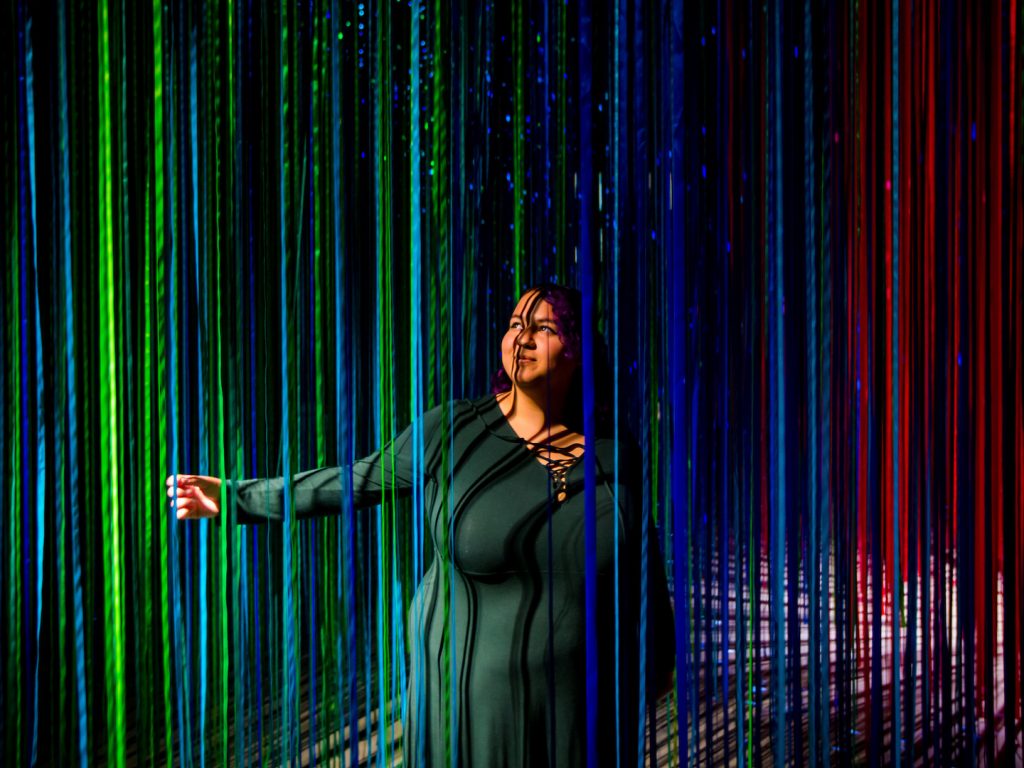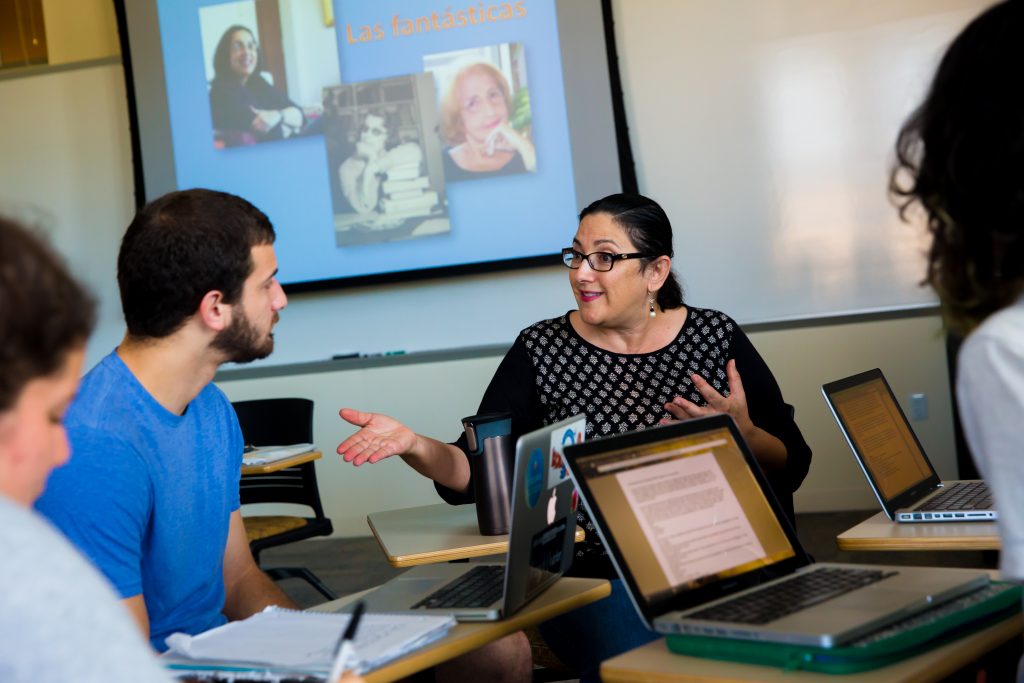Humanities invites us to move from thought and study to action and expression across disciplines.

About the Humanities Area of Concentration
“Humanities” is the study of human thought, creation, and experience, the studia humanitatis. It’s rooted in ancient global debates about developing “virtue” through balancing contemplation with action in the world. Studying Humanities asks what does it mean to be human? What goes into the category of the human and, importantly, how does the human intersect with the non-human world? The Humanities AOC invites students to work across disciplines and interdisciplinary fields, to range widely, and to explore human thought, expression, and experience through multiple lenses.
Humanities collects together the academic fields concerned with human expression and thought. At New College, Humanities includes Art and Art History, Classics, Languages and Literatures (Chinese, English, French, German, Ancient Greek, Latin, Russian, Spanish), Music, Philosophy, and Religion. Humanities collaborates or informs interdisciplinary areas— Environmental Studies; Gender Studies; Health, Culture and Societies; International and Area Studies; Medieval and Renaissance Studies; Theater, Dance, and Performance Studies, to name only a few interdisciplinary programs at New College.
Featured Course
LITR 3488
A Latin American Gothic?
This course offers a good and weird overview of modern and contemporary short fiction in Latin America. We will begin by looking into the notion of the ‘Gothic’ as it has been elaborated in the Anglo-American tradition. We will then rework the notion [keep it under questions marks] to be used as a speculative tool in our reading of a group Latin American texts. We will focus on short stories and short novels from the early 20th- to early 21st century. The reading list includes [among others] short stories by Horacio Quiroga, Clemente Palma, Ámparo Dávila, Julio Cortázar, Gabriel García Márquez, Mariana Hernríquez, Carmen María Machado; and short novels by Maria Luisa Bombal, Silvina Ocampo, Juan Rulfo, Carlos Fuentes, Shamana, Schweblin and Cristina Rivera Garza. Most of these texts have traditionally been read under the rubirics of the ‘fantastic’ and.opr ‘magical realism’. The contention of this course is that ‘gothic’ offers a better frame to understand the terms in which these narratives connect with each other, engage with the worlds in which they are produced, and participate in dialogue with broad {transitional, ‘modern’} imaginary. A selection of films by Lucrecia Martel, Guillermo del Toro, Alejandro Amenábar, Gustavo Hernández and Demián Rugna will be exhibitiexc as a companion to the course. This course is open to all students interested in cross-cultural and cross-historical issues.
Recent courses
|
|
Career Pathways
- Education
- Advocacy
- Social Services
- Media and Communications
- Marketing
- Museums and Libraries
- Journalism
- Law
Contact Us
Humanities Division
Phone Number
Email Address
Location
Ace Academic Center 116

Humanities Division Faculty
View the interdisciplinary faculty of the humanities division at New College of Florida
